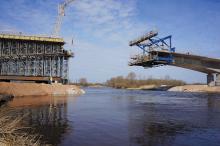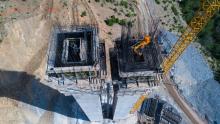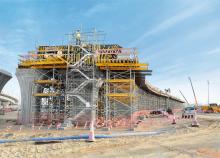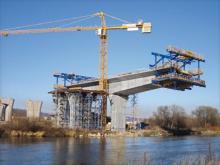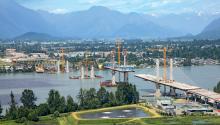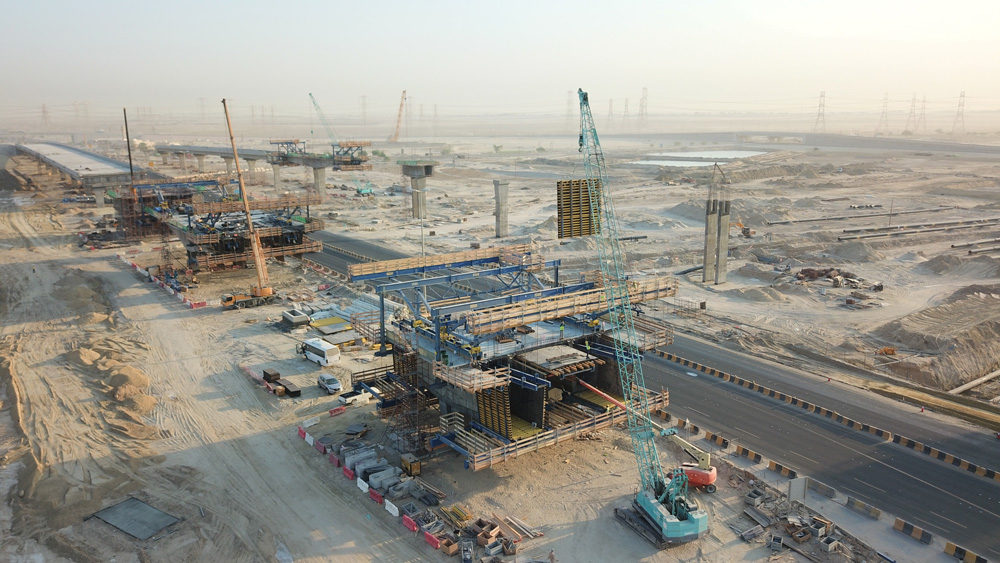
In delivering a solution for the highway bridge section, Doka helped provide Kuwait with a landmark achievement - its first in-situ cantilever bridge.
Doka supplied an all-in-one solution that included 3D planning, cantilever forming travellers and formwork instructors' support to ensure a smooth, fast and cost-effective process.
The 37km RA217 section of the Nawaseeb Road, also known as Route 40, is one of Kuwait's most important transport projects and part of Kuwait’s Development Plan 2015-2020. Work includes reconstruction and expansion of the highway into a six-lane dual carriageway with nine interchanges and three bridges. The design replaces U-turn points with roundabouts at all interchanges.
Doka was required to find a casting solution for the two main bridges, including pier-to-pier spans, for a combined length of 940m. The longest spans are 110m. Also, there is one 893m-long ramp bridge with a maximum span of 95m between piers. The work required 300 casting sections up to 250tonnes in weight.
Doka used its internal digital planning tools to design the solution that ensured an accelerated planning process while providing the client with an overall visual representation of the project. DokaCAD for Revit was used to produce a 3D model for a more precise visualisation of the cantilever forming travellers.
In total, six Doka Cantilever Forming Travellers, supplemented with around 2,000m² of Large-area formwork Top 50 were used on both the main bridges and ramp bridge at Interchange 5. About 825tonnes of Doka material was used.
Using Doka's Cantilever Forming Traveller, the client was reassured by its high-performance precision and how its modular components enabled it to adapt flexibly and quickly to the bridges' varying geometrics. Thanks to the system's ergonomics and a small number of separate parts, the construction process was optimised, meaning a shorter construction schedule to reduce cost.
Due to limited space onsite, hydraulic cylinders were used to strip the inner wall formwork. As the bridge deck geometry was required to be reduced at every casting step as part of the agreed planning process, the formwork and components of the traveller had to be continuously adjusted. Various hydraulic cylinders and other integrated functions allowed for an easy adjustment process without using chain hoists or additional workforce.
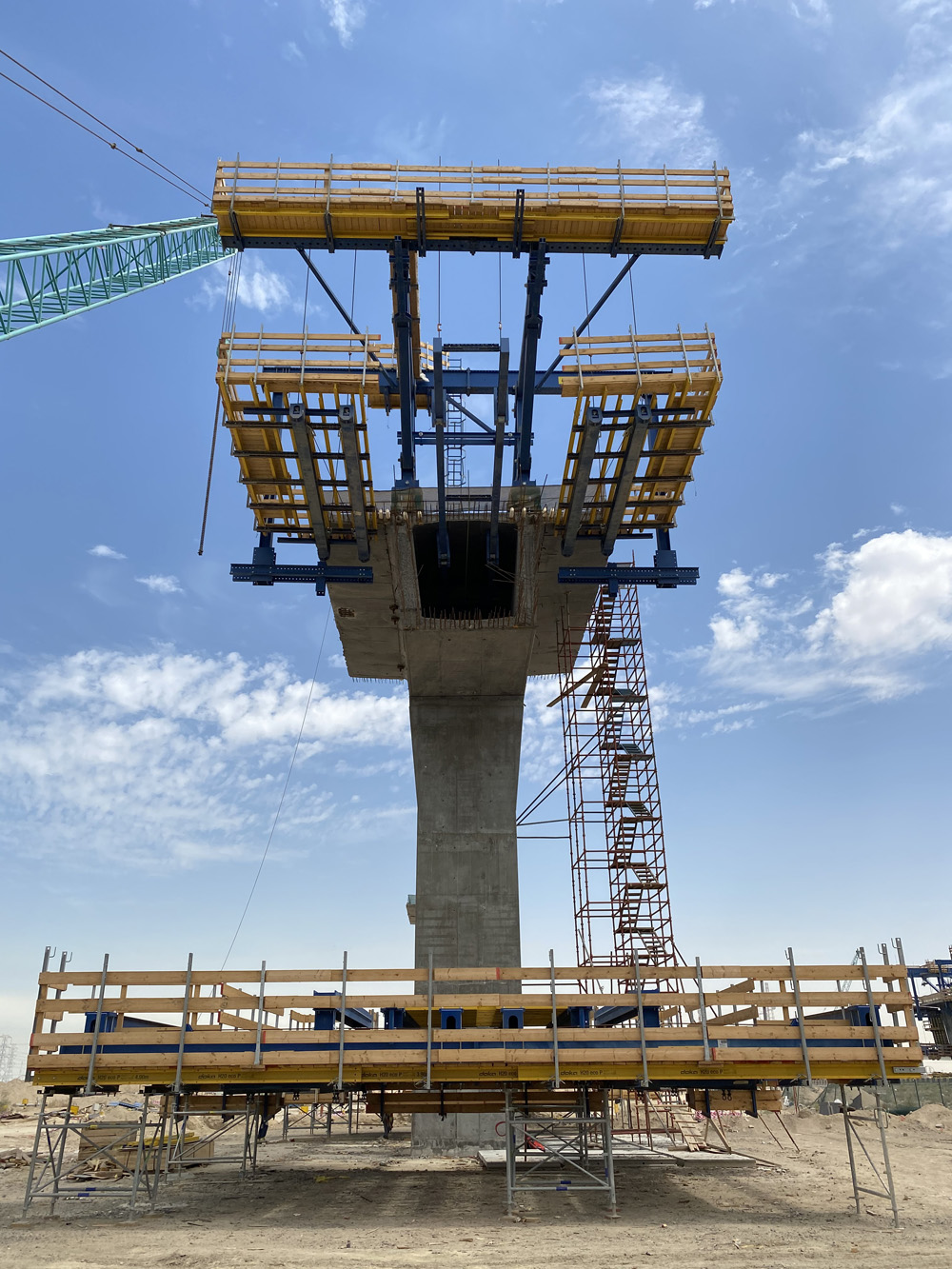
Doka’s Cantilever Forming Traveller uses special slide bearings to allow safe and controllable shunting while preventing unwanted movement along its longitudinal gradients. This ensured the construction team's safety in every phase of the project through fully-enclosed working platforms and an integrated ladder system at all levels.
Meanwhile, Doka’s formwork for the pier heads measured up to 20m in height, 12m in length and was erected onto Load-bearing towers d3 with Large-area formwork Top 50.
Due to the restrictions of existing gas pipelines, the piers' location was predefined, resulting in different spans that led to an im-balance in construction delivery. To support the bridge deck during this phase, Doka UniKit towers were used to safely transfer up to a maximum force of 3,800kN to restore balance to the process and ensure the safe delivery of the piers.
Doka Formwork Instructors supported onsite delivery by ensuring that the formwork was used effectively and that the operations ran smoothly from start to finish.
"In using Doka's Cantilever Forming Traveller solution, the project benefited from having an all-in-one solution that was easy for our site teams to use while remaining flexible in terms of versatility for the project's varying challenges,” said Mohamed Dackrory, deputy executive manager of Arab Contractors.


